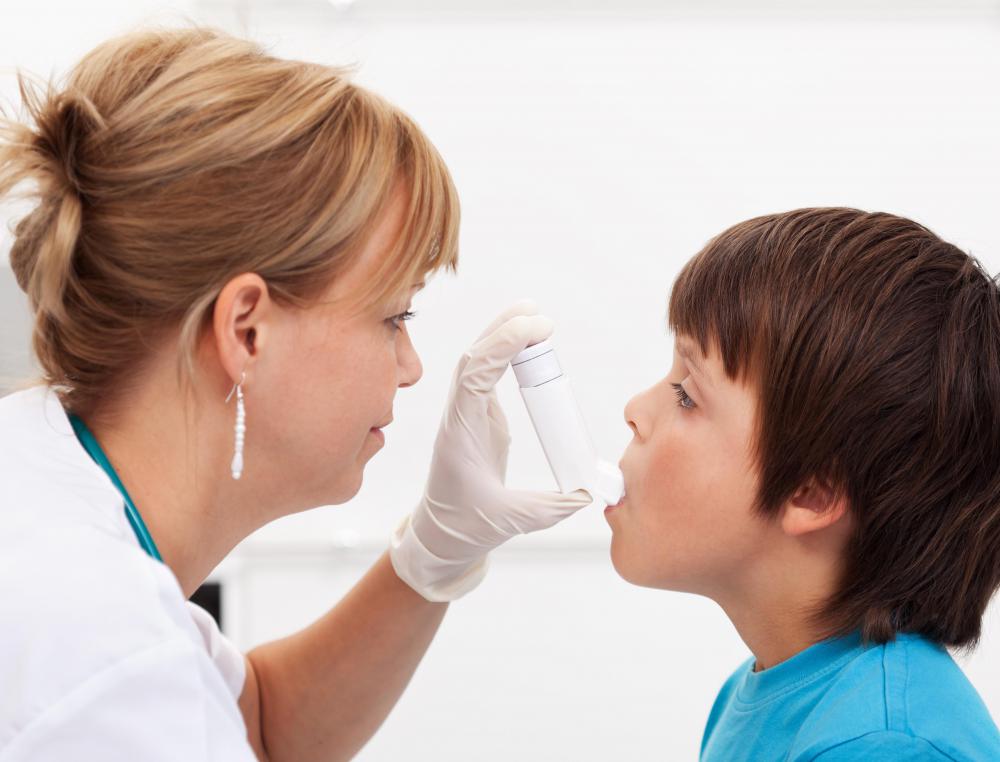At WiseGEEK, we're committed to delivering accurate, trustworthy information. Our expert-authored content is rigorously fact-checked and sourced from credible authorities. Discover how we uphold the highest standards in providing you with reliable knowledge.
What is a Pulmonologist?
A pulmonologist is a medical doctor who specializes in treating disorders related to the lungs and respiratory system. He or she analyzes diagnostic tests, researches symptoms, consults with other professionals, and administers appropriate treatments. This professional is skilled in helping patients with chronic conditions, such as asthma, as well as acute complications of respiratory failure. Pulmonologists may work in many different settings, including general hospitals, emergency care centers, and private practices. Since the lungs are such complex and delicate organs, this doctor is required to spend several years in medical school and residency programs to gain expertise in the subject.
When seeing a patient with a chronic condition, the pulmonologist first identifies physical symptoms through a careful physical examination. He or she might use a stethoscope to listen to the lungs, a bronchoscope to see inside the airways, or a spirometer to measure lung capacity. After identifying symptoms, the doctor may decide to perform blood tests of diagnostic imaging scans to make a differential diagnosis. By investigating possibilities and keeping careful records of tests performed, he or she can usually determine the exact causes of a patient's problems.

A pulmonologist can help individuals who suffer from bronchitis, asthma, pneumonia, cancer, or other chronic conditions by prescribing medications or recommending surgery. In an emergency situation, the doctor can administer oxygen therapy or cardiopulmonary resuscitation to prevent a life-threatening problem. He or she may decide to place a patient on a mechanical respirator until the condition can be resolved. Following treatment, the medical professional usually schedules regular checkups with patients to monitor their conditions and ensure respiratory problems do not return.

A person who wants to become a pulmonologist must receive a Doctor of Medicine degree from an accredited, four-year medical school. Upon graduation, a new doctor usually enters a one-year internship program at a general hospital or emergency room to gain practical experience dealing with patients. A three-year residency program in internal medicine follows an internship, during which time the doctor practices under the supervision of experienced doctors. Finally, a professional spends two to four years in a pulmonary medicine fellowship to master his or her skills.

Completing a fellowship qualifies a new doctor to take a licensing examination administered by a regional or national board. Board certification is necessary before he or she can begin practicing independently. Licensed doctors generally enjoy many employment opportunities at hospitals and clinics, and some professionals are able to open successful private practices right away.
AS FEATURED ON:
AS FEATURED ON:
















Discuss this Article
Post your comments